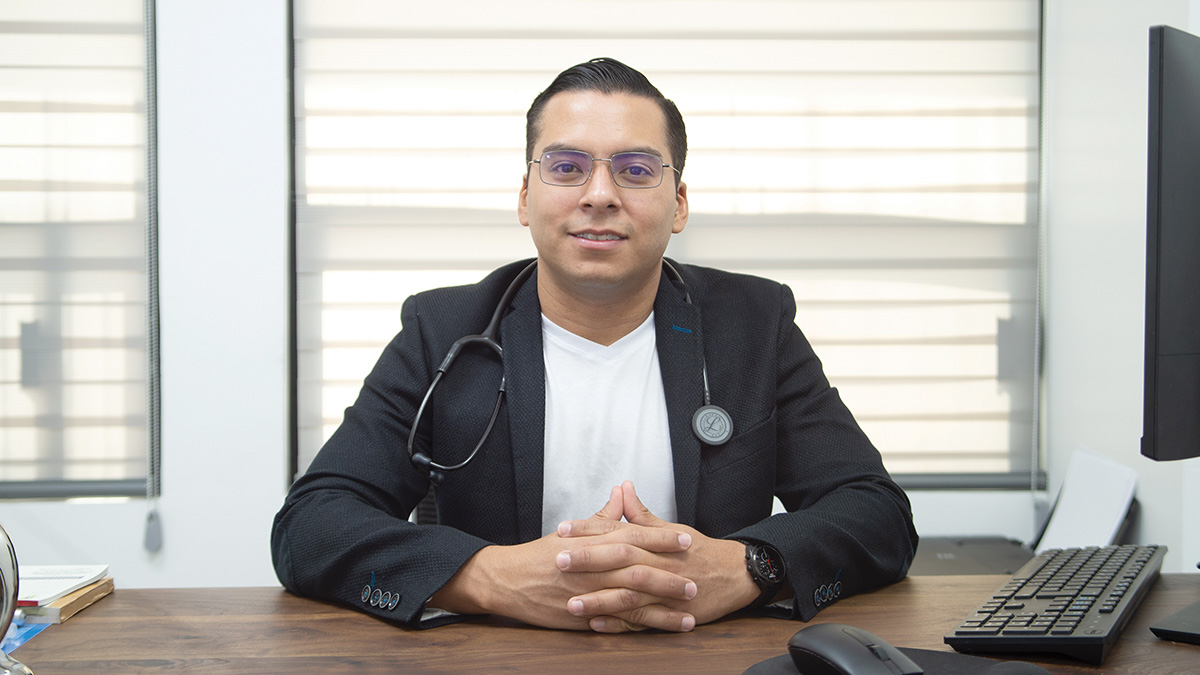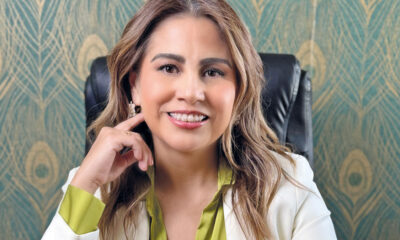Salud
‘Hoy por ti, mañana por mí’
Publicado
3 años antesel

En el Día Mundial del Donante de Sangre, se busca concientizar sobre la necesidad de donar con regularidad el tejido líquido que puede salvar una vida
Muchas veces en redes sociales hemos visto publicaciones o solicitudes de donadores de sangre, hombres y mujeres sanos que ayuden en el tratamiento de otras personas que pasan por alguna afectación de salud o sobreviven a un trauma físico.
Sin embargo, pese a ser requerida diariamente para salvar vidas, la donación de sangre no es una práctica común para los habitantes de Ciudad Juárez, ni de ninguna ciudad de Latinoamericana, por lo que el próximo 14 de junio se intenta concientizar sobre el tema.
El Día Mundial del Donante de Sangre, fue instituido por la Organización Mundial de la Salud (OMS) con el objetivo de agradecer la contribución voluntaria y desinteresada del tejido, además de que con esta conmemoración se busca concientizar sobre la necesidad de donar con regularidad para garantizar la calidad, seguridad y disponibilidad de la sangre y otros productos como el plasma o las plaquetas.
Sobre el tema habla para Visionarias el hematólogo Bosco McNally, experto en esta especialidad, así como en el área de trasplante de medula ósea.
La importancia de donar
Aunque parezca trillado, “cuando estás donando sangre, estás donando una vida”, pues una transfusión ayuda al paciente a ganar tiempo en lo que el médico logra remitir o hasta curar la enfermedad.
“La donación altruista es casi inexistente en muchas partes de Latinoamérica, pero es la más eficiente, es decir, el donador que es más confiable es el donador que va voluntariamente a dar su sangre”, asegura McNally, quien utiliza el tejido, sobre todo, en personas con leucemia.
Quién sí
Sobre los donantes, el médico de origen nicaragüense comenta que todos son aptos para donar, siempre y cuando no se padezca alguna enfermedad infectocontagiosa crónica o hayan padecido alguna infección bacteriana en las últimas dos semanas.
Incluso, desmintiendo tabúes, asegura que personas con tatuajes, que se lo hayan hecho un año atrás pueden ser perfectos donadores, lo cual pueden hacer cada 60 días, y siete en el caso de las plaquetas,
Sólo hay que acudir al banco de sangre con ayuno de 8 horas, así como el mismo lapso de sueño, y sin haber consumido drogas o alcohol recientemente.
“Hoy por ti, mañana por mí… la sangre se repone”, asegura.
Trayectoria médica
El doctor Bosco Martín McNally Guillen es un especialista en medicina interna con especialidad en hematología y alta especialidad en trasplante de medula ósea, quien realizó la primera parte de su carrera en Nicaragua, su país natal, y donde se especializó en medicina interna.
Posteriormente, buscó dónde estaban los mejores institutos latinoamericanos para el estudio de la hematología, y viendo el ejemplo de sus maestros, fue que decidió venir a México, a la Universidad Autónoma de México (UNAM).
Luego, en el Instituto Nacional de Cancerología, hizo la alta especialidad en medula ósea y finalmente se integró a la Asociación Mexicana para el Estudio de la Hematología.
Su otro gran proyecto
Desde hace tiempo, el hematólogo, junto con el Centro Médico de Especialidades de esta ciudad, trabajan en la conformación de un área de trasplante de medula ósea, para lo cual ya sólo necesitan la licencia de la Comisión Federal para la Protección contra Riesgos Sanitarios (Cofepris).
Este tipo de trasplantes nos cuenta, beneficia a pacientes hematológicos o con cáncer, y hasta a pacientes con esclerosis múltiple, incluso se hacen investigaciones con pacientes de Diabetes I, a quienes podría ayudar en el combate de la enfermedad.
McNally asegura que un trasplante de medula ósea tiene dos objetivos, “tratar de curar la enfermedad junto con una dosis alta de quimioterapia y darle un nuevo sistema inmunológico al paciente para que pueda hacerle frente a su enfermedad”, para lo cual se requiere de un equipo especializado, pues “no cualquiera lo puede hacer”.
Así que, si tienes la oportunidad, aunque no sea una emergencia familiar o la de algún amigo, acércate a donar, salva una vida y por el ejemplo en tu comunidad.
Dónde encontrarlo
Consultorio 412, cuarto piso del Centro Médico de Especialidades
Teléfono: 656-757-9301
Facebook: Dr. Bosco Martín McNally Guillen-Hematologo
Today for you, tomorrow for me
World Blood Donor Day seeks to raise awareness of the need to donate the liquid tissue that can save a life regularly
Many times in social networks, we have seen publications or requests for blood donors, healthy men and women, to help treat other people going through some health condition or surviving a physical trauma.
However, despite being required daily to save lives, blood donation is not a common practice for Ciudad Juarez or any city in Latin America. Next, June 14 is intended to raise awareness of the issue.
World Blood Donor Day was instituted by the World Health Organization (WHO) to thank tissue’s voluntary and selfless contribution. In addition, this commemoration seeks to raise awareness about the need to donate regularly to ensure the quality, safety and availability of blood and other products such as plasma or platelets.
Hematologist Bosco McNally, an expert in this specialty and the area of bone marrow transplantation, talks to Visionarias about this subject.
The importance of donating
Although it may seem trite, “when you are donating blood, you are donating a life,” since a transfusion helps the patient gain time while the doctor manages to cure the disease.
“Altruistic donation is almost non-existent in many parts of Latin America, but it is the most efficient, that is to say, the most reliable donor is the donor who goes voluntarily to give his blood,” assures McNally, who uses the tissue, above all, in people with leukemia.
Who does
Regarding donors, the Nicaraguan-born physician comments that everyone is apt to donate as long as they do not suffer from any chronic infectious disease or have had any bacterial infection in the last two weeks.
Even denying taboos, he assures that people with tattoos, who have had them done a year ago, can be perfect donors, which they can do every 60 days, and seven in the case of platelets,
They only have to go to the blood bank with an 8-hour fasting period and the same amount of sleep, and without having consumed drugs or alcohol recently.
“Today for you, tomorrow for me… the blood is replenished,” he assures.
Medical trajectory
Dr. Bosco Martín McNally Guillen is a specialist in internal medicine specializing in hematology and a high thing in bone marrow transplantation. He spent the first part of his career in Nicaragua, his native country, specializing in internal medicine.
Afterward, he looked for the best Latin American institutes to study hematology, and seeing the example of his teachers, he decided to come to Mexico to the Autonomous University of Mexico (UNAM).
Later, at the National Institute of Cancerology, he became a bone marrow specialist and finally joined the Mexican Association for the Study of Hematology.
His other great project
For some time now, the hematologist, together with the Medical Center of Specialties of this city, has been working on the conformation of a bone marrow transplant area. They only need a license from the Federal Commission for the Protection against Sanitary Risks (Cofepris).
This type of transplant, he tells us, benefits hematological or cancer patients and even patients with multiple sclerosis, and research is even being carried out with Diabetes I patients, who could be helped in the fight against the disease.
McNally assures that a bone marrow transplant has two objectives, “to try to cure the disease together with a high dose of chemotherapy and to give the patient a new immune system so that he can face his disease,” for which a specialized team is required, since “not just anyone can do it.”
So, if you have the opportunity, even if it is not a family emergency or that of a friend, come and donate, save a life and set an example in your community.
Where to find him
Office 412, fourth floor of the Specialties Medical Center
Phone: 656-757-9301
Facebook: Dr. Bosco Martin McNally Guillen-Hematologist
Te puede interesar

Relaciónate sanamente con tus alimentos durante estas vacaciones; valora tanto el placer como la conciencia de elegir opciones saludables
Como ya sabemos, las vacaciones suelen ser sinónimo de descanso, familia, amigos y comida, lo que hace casi imposible pensar en cuidarnos o ser saludables. Pero ¿y si cuidarse también incluyera disfrutar?
Como nutrióloga te diré que comer de forma saludable no es sinónimo de restricciones, de dietas estrictas o de privarte de alimentos que te agradan. Comer saludable es un equilibrio que busca llevar una relación positiva con la comida, consumiendo alimentos con buen aporte nutricional, pero sin dejar de disfrutar de tus comidas favoritas.
Con este artículo más que darte consejos para ser saludable en vacaciones, te invito a modificar la forma en la que te relaciones con tus alimentos.
1. Escucha a tu cuerpo
La gran mayoría durante esta temporada no sigue una dieta o plan alimenticio, así que, aprender a comer con atención y escuchar a tu cuerpo (cuando tiene hambre y cuando está satisfecho) es la mejor solución sea cual sea la comida.
2. Ordena tus alimentos
En tu plato, empieza con las verduras, luego proteínas (pollo, carne, pescado, huevo, leguminosas), seguido de las grasas (aguacate, nueces, almendras) y por último carbohidratos (pan, arroz, pasta, tortillas), esto te ayudara a aumentar la saciedad y mejorar la digestión.
3. Hidrátate bien
Es importante beber 8 vasos de agua al día, pudiendo incluir tes e infusiones (sin azúcar) para evitar la deshidratación.
4. Muévete con libertad
Camina, explora, conoce, pero siempre procura mantenerte activo, esto te ayudará con la digestión mejorando la motilidad intestinal.
5. Elige con intención y no con culpa
Si vas a darte un gusto, hazlo con plena conciencia y disfrútalo sin remordimientos. Ten en cuenta que un alimento fuera de lo saludable no arruina el proceso, pero una mala alimentación prolongada sí.
Recuerda que en estas vacaciones buscamos nutrir nuestro cuerpo, pero también alimentar el alma.
The Art of Taking Care of Yourself Without Missing Out on Enjoyment
Build a healthy relationship with food during the holidays—honor both the pleasure and the awareness of choosing healthy options.
As we all know, vacations are usually synonymous with rest, family, friends, and food—which makes it almost impossible to think about staying healthy or taking care of ourselves. But what if self-care could also include enjoyment?
As a nutritionist, I can tell you that eating healthily doesn’t mean restriction, strict diets, or depriving yourself of foods you enjoy. Healthy eating is about balance—it means developing a positive relationship with food, choosing items with good nutritional value without giving up your favorite meals.
Rather than offering traditional health tips for vacation, this article invites you to rethink your relationship with food.
1. Listen to Your Body
Most people don’t follow a specific diet or meal plan during this time of year. So, the best solution, no matter what you’re eating, is to practice mindful eating—listen to your body, recognize when you’re hungry, and stop when you’re satisfied.
2. Organize Your Meals
When building your plate, start with vegetables, then move to proteins (chicken, meat, fish, eggs, legumes), followed by fats (avocado, nuts, almonds), and finally carbohydrates (bread, rice, pasta, tortillas). This helps increase satiety and improve digestion.
3. Stay Hydrated
It’s important to drink at least 8 glasses of water a day. You can also include teas and infusions (without sugar) to avoid dehydration.
4. Move Freely
Walk, explore, sightsee—but always try to stay active. Movement helps your digestion and improves intestinal motility.
5. Choose Intentionally, Not Out of Guilt
If you’re going to indulge, do it consciously and without remorse. Remember: one “unhealthy” meal won’t ruin your progress, but prolonged unhealthy habits can.
Remember: This vacation, aim to nourish your body—but also feed your soul.

Descubre qué es el brainrot y cómo lo afecta tu teléfono
¿Cuántas veces has agarrado el celular y no recuerdas para qué fue que lo tomaste?;
¿Cuántas veces, ya que lo tienes en la mano y recordaste para que lo agarraste, te llega una notificación de tus redes, entras y sin darte cuenta ya pasaste más de 15 minutos revisando el feed, y de pronto, como que una “revelación” llega de nuevo a tu mente que te recuerda para qué fue que tomaste el cel, sales del feed para realizar lo que harías, y ya estando en la aplicación que usarías, olvidas de nuevo para qué estás ahí?
¡A mí me ha pasado infinidad de veces! Pensé que quizás era por mi edad, por los embarazos, por las hormonas, por los “efectos del COVID”, bueno hasta pensé que era por los problemas con mi marido, pero la verdad de las cosas, es que esto es una consecuencia por el excesivo uso de redes sociales que provoca lo que ahora se conoce como la “epidemia del BRAINROT”.
Pero ¿qué es esto?,
sígueme leyendo, te platico. El “brainrot” conocido también como podredumbre de cerebro, específicamente hace referencia al contenido no educativo que consume tu atención, no te aporta valor real, y genera una sensación de embotamiento mental, disminuyendo así tu capacidad de concentración.
¿Cómo afecta el brainrot a tu cerebro?
Según investigaciones han demostrado que el consumo excesivo de contenido superficial o negativo reduce la materia gris en la corteza pre frontal, la cual es la parte del cerebro encargada de la toma de decisiones, control de impulsos y resolución de problemas; disminuye tu capacidad de atención, debilita tu memoria, aumento de ansiedad y depresión, entre otros.
No te asustes, mejor toma medidas; por ejemplo establece límites de tiempo, desactiva notificaciones, has actividades offline como leer un libro (la biblia por ejemplo), has ejercicio y socializa sin pantallas! La vida es tan corta y bella que vale la pena invertir tiempo de calidad en ella. Grissell Guel.
Social Media Disease
Discover what brairot is and how your phone affects it
How many times have you picked up your phone and can’t remember why you picked it up?
The scene continues… as soon as you have it in your hand and remember what you picked it up for, you get a notification from your social media feed. You log in and, without realizing it, you’ve spent more than 15 minutes scrolling through your feed. However, suddenly, like a “revelation,” it hits you why you picked it up.
Then you exit the feed to do what you had to do, and once you’re in the app you were supposed to use, you forget again why you’re there.
Did that sound familiar? It happens to me countless times.
In my case, I thought it was because of my age, pregnancies, hormones, the “effects of Covid.” Well, I even thought it was because of problems with my husband, but the truth is, this is just a consequence of excessive social media use, causing what is now known as the “brainrot epidemic.”
What’s this?
Brainrot, specifically refers to non-educational content that consumes your attention, provides no real value, and creates a feeling of mental dullness, thus diminishing your ability to concentrate.
How does it affect your brain?
According to research, excessive consumption of superficial or negative content reduces the gray matter in the prefrontal cortex, the part of the brain responsible for decision-making, impulse control, and problem-solving. It decreases your attention span, weakens your memory, and increases anxiety and depression, among other factors.
Don’t panic; take immediate action: set time limits, turn off notifications, do offline activities like reading a book (the Bible, for example), exercise, and socialize without screens.
Life is so short and beautiful that it’s worth investing in quality time.

Acudir al doctor durante esta etapa disminuye el riesgo de problemas antes y durante la gestación, tanto para la madre como para el hijo
Tener un embarazo saludable es una de las mejores maneras de promover un nacimiento sano, para lograrlo debemos llevar un control adecuado previo y durante la gestación.
¿Qué son los cuidados previos?
Es el cuidado médico que recibe una mujer antes de quedar embarazada. Para las que están considerando embarazarse, acudir a control médico puede disminuir el riesgo de tener problemas durante el embarazo o después del parto con alteraciones perjudiciales duraderos para el bebé.
Medidas a considerar
1. Elaborar un plan para la vida reproductiva de la paciente y su pareja con respecto al número de hijos y en qué momento tenerlos relacionado a objetivos de vida
2. Llevar una dieta y un estilo de vida saludable
3. Asegurarse de tener las vacunas adecuadas
4. Ingesta de ácido fólico: consumir 0.4 mg al día de ácido fólico tres meses antes de un embarazo y tres meses después de concebir, puede reducir el riesgo de espina bífida u otros defectos del tubo neural
5. Control de un padecimiento (hipertensión, diabetes, hipotiroidismo y otros)
6. Evitar fumar, beber alcohol, consumir fármacos/ drogas
7. Tratar de alcanzar un peso saludable, ya que pone en riesgo el tener complicaciones durante el embarazo (presión alta, preeclampsia, diabetes gestacional y muerte materno fetal)
8. Conocer sobre sus antecedentes de Salud Mental Familiar y de su pareja
¿Qué son los cuidados prenatales?
Son los cuidados médicos que recibe una mujer durante el embarazo, deben iniciarse en cuanto sepa de su embarazo. Las visitas prenatales son importantes para la salud tanto de la mamá como la del feto. Una mujer que no recibe cuidado prenatal tiene tres veces más probabilidades de tener un bebé con bajo peso al nacer y también puede aumentar el riesgo de muerte del bebé.
¿Cómo es el control?
El seguimiento del embarazo se realiza con regularidad y frecuencia para vigilar posibles alteraciones o trastornos que puedan identificarse antes de complicarse. La frecuencia de las visitas varía según el grado de riesgo que presenta el embarazo y la madre. Por lo general en la cita se realizan varias pruebas a las mujeres como control de peso, toma de presión arterial, análisis de sangre y orina, así como ultrasonidos.
En México, cada año se embarazan un promedio de un millón y medio de personas, del 5 al 10% no acude a control prenatal; situación que pone en riesgo la salud de la madre y de su hijo.
El 85% de los embarazos llegan a término sin complicaciones El 15% son de alto riesgo, algunos terminan en abortos espontáneos, partos pretérmino o prematuro, según el Hospital General México.
Pregnancy planning and preparation
Seeing the doctor during this stage reduces the risk of problems before and during pregnancy, for both mother and child.
Having a healthy pregnancy is one of the best ways to promote a healthy birth. To achieve this, we must maintain adequate monitoring before and during pregnancy.
What is prenatal care?
It is the medical care a woman receives before becoming pregnant. For those considering pregnancy, seeking medical care can reduce the risk of problems during pregnancy or after delivery that could be harmful to the baby.
Measures to Consider
1. Develop a reproductive life plan for the patient and her partner regarding the number of children and timing of their childbearing, in relation to life goals.
2. Maintain a healthy diet and lifestyle.
3. Ensure adequate vaccinations.
4. Folic acid intake: Consuming 0.4 mg of folic acid daily three months before pregnancy and three months after conception can reduce the risk of spina bifida or other neural tube defects.
5. Manage a medical condition (hypertension, diabetes, hypothyroidism, and others).
6. Avoid smoking, drinking alcohol, and using medications.
7. Aim for a healthy weight, as this increases the risk of complications during pregnancy (high blood pressure, preeclampsia, gestational diabetes, and maternal and fetal death).
8. Learn about your family’s and your partner’s mental health history.
What is prenatal care?
It is the medical care a woman receives during pregnancy and should begin as soon as she learns she is pregnant. Prenatal visits are important for the health of both the mother and the fetus. A woman who does not receive prenatal care is three times more likely to have a low-birth-weight baby and may also increase the risk of stillbirth.
What is the checkup like?
Pregnancy monitoring is performed regularly and frequently to monitor for possible alterations or disorders that can be identified before complications develop. The frequency of visits varies depending on the degree of risk posed by the pregnancy and the mother. Typically, women undergo several tests during the appointment, such as weight monitoring, blood pressure measurements, blood and urine tests, and ultrasounds.
In Mexico, an average of 1.5 million people become pregnant each year; 5 to 10% do not attend prenatal care, a situation that puts the health of both the mother and her child at risk.
85% of pregnancies reach term without complications. 15% are high risk, some ending in miscarriages, preterm births, or premature births, according to the Hospital General México.
















